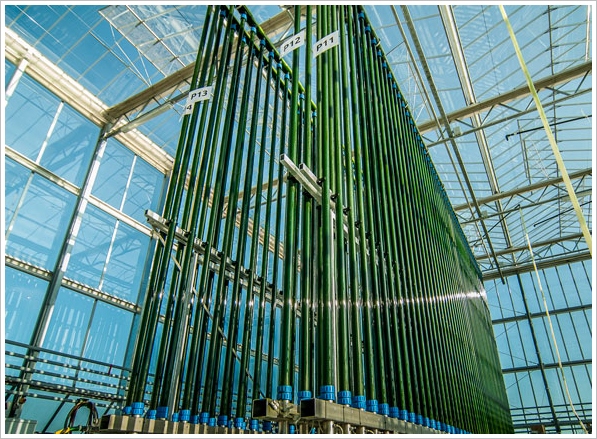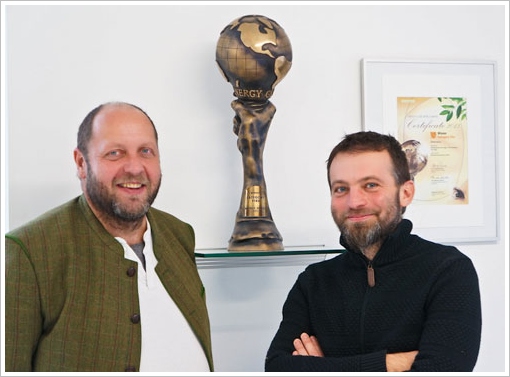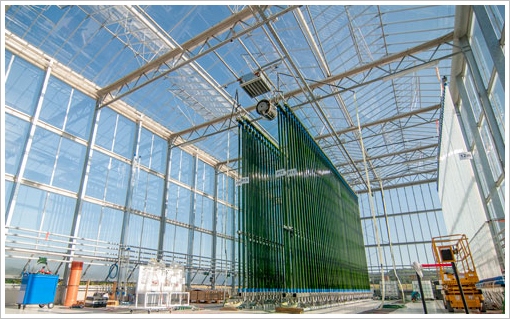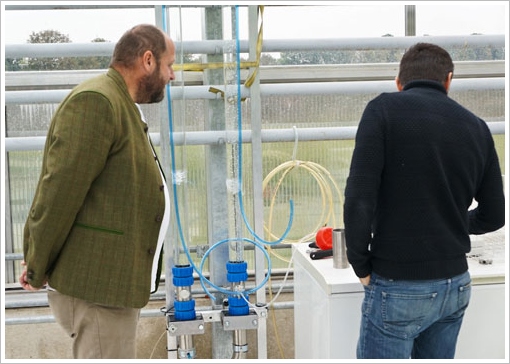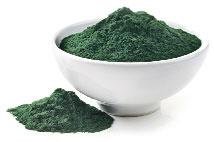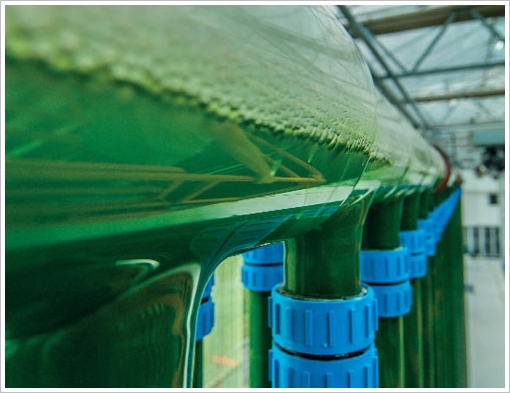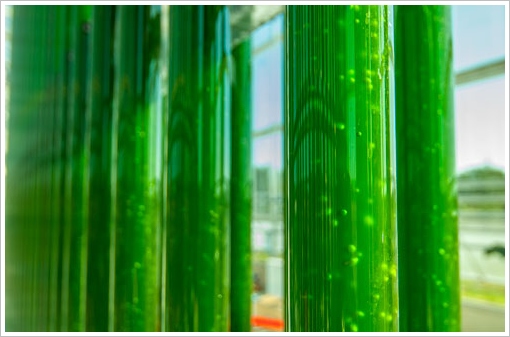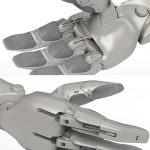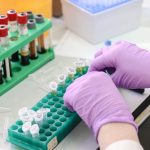According to the United Nations, malnutrition is the largest single contributor to disease in the world. Even those of us who live in the 21st century modern developed world, can suffer from ‘lifestyle malnutrition’; through a lack of vital nutrients, especially if we eat badly, or rely too much on fast food and processed produce. But now there may be an answer on the way, thanks to some ingenious technology from a small Austrian company.
Ecoduna, a startup based in the foothills of the Alps in southern Austria and founded by two long-time friends, has developed a super efficient production system which can use waste CO2 and seawater to produce huge quantities of micro-algae, which is probably the most nutritious food stuff in the world. The pair, Martin Mohr and Franz Emminger, have managed to completely revamp the concept of producing this super food, by creating what they call ‘hanging gardens’, which grow the algae upwards rather than in flat ponds as is done conventionally.
The secret sauce
The patented system has won several awards, mostly because the pair have managed to massively increase the quantity of algae that can be produced without losing any quality or reliability of production. Where conventional grass biomass systems can produce 3 to 4 tons of algae per hectare, and the most efficient pond systems up to 40 tons per hectare, the Ecoduna hanging garden system can produce a staggering 200 tons per hectare. Orders of magnitude more than rival systems.
Producing micro-algae is not a new idea, and in fact the US government and numerous companies have spent millions of dollars trying to perfect efficient, robust systems which can produce high quality algae on demand in quantity. But in each case, the difficulties of trying to manage a living culture in a stable manner has defeated the scientists involved. Issues with algae stress, lighting, pollutants and other impacts has meant that very few companies have been able to deliver an economically viable product. Which is where Ecoduna’s new PBR (or photobioreactor) hopes to win big.
Closed loop control
Unlike almost every other system, the hanging gardens are closed loop, and just as importantly, use a clever system of zero pump transport which ensures that the algae are not stressed as they mature over their 14 day lifespan. This also avoids the problems of contamination by other organisms, and of course the system can be sited anywhere there is space. Which means no taking up valuable agricultural land. As long as there is light, a reliable source of CO2 and seawater or nutrient carrying plain water, then the factory is in business.
“Our system benefits from a very small footprint, but a very large area for production, which means it’s very efficient,” says Franz Emminger, CTO of Ecoduna, “In this way it mimics a tree, with a lot of surface area for the light to do its magic. Also because we’re recycling all the water, and using as much waste material as possible for inputs, it’s also a very ecologically friendly production system.”
The future of food and fuel?
The pilot test plant in Austria has been running for some three years while the team tweaked the technology to improve yields and reliability, and they are now ready to move to full production on a half hectare plot of land. Although the company is currently focused on producing neutraceuticals such as Spirolina and Chlorella from the algae, the production output can be changed quickly and easily depending on which algae is used as the seed stock (there are around 30,000 types of micro-algae in existence). Which makes the system very flexible.
Conclusion
With the ocean marine population having halved over the past 45 years, it’s clear that we’re headed for a precarious era in terms of food production and stability. And with the threat of climate change and hugely disrupted weather patterns hanging over our heads, it’s likely that we’re not going to be able to rely on our traditional mass production agricultural systems so much in the future either.
Which means we’re going to need to find alternate sources of nutrition – and maybe fuel – in order to feed our thriving populations. Micro-algae may well prove to be the savior of our species if we can harness its benefits as well as this new technology seems to do. Ecoduna is already in discussions with several major Middle East companies over taking this ‘green gold’ technology to the next stage, so hopefully we will shortly start to see the results of this innovative system solving some of the most important issues we face in the coming decades.

